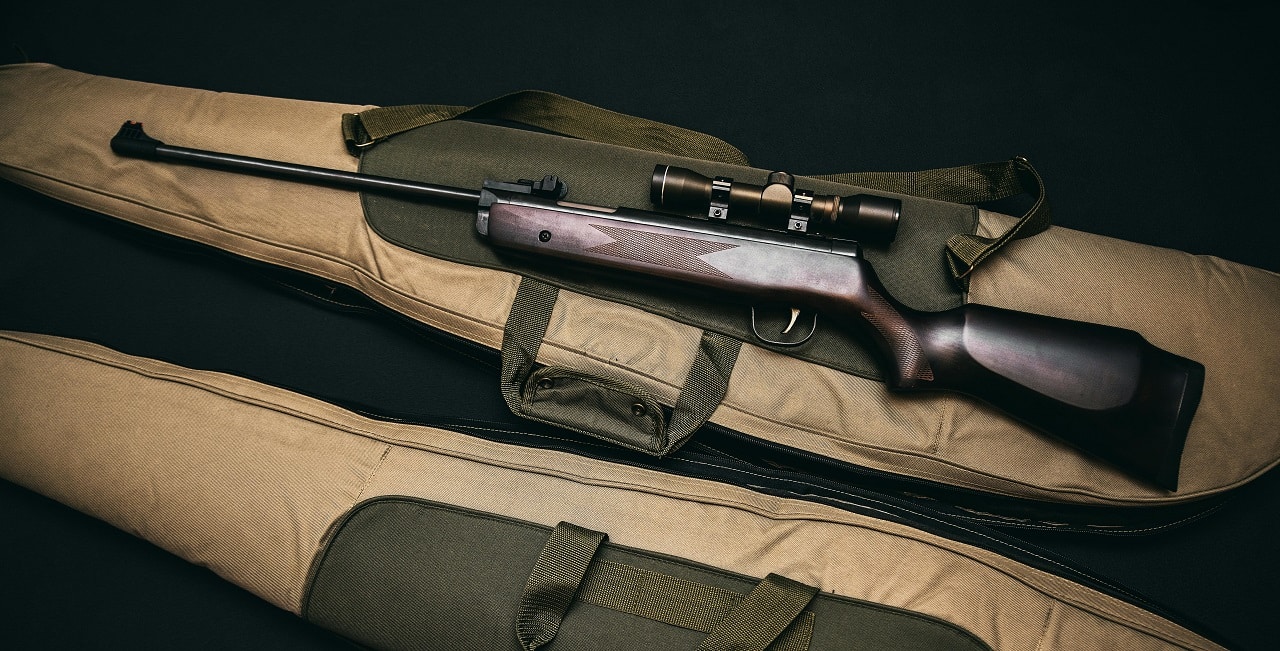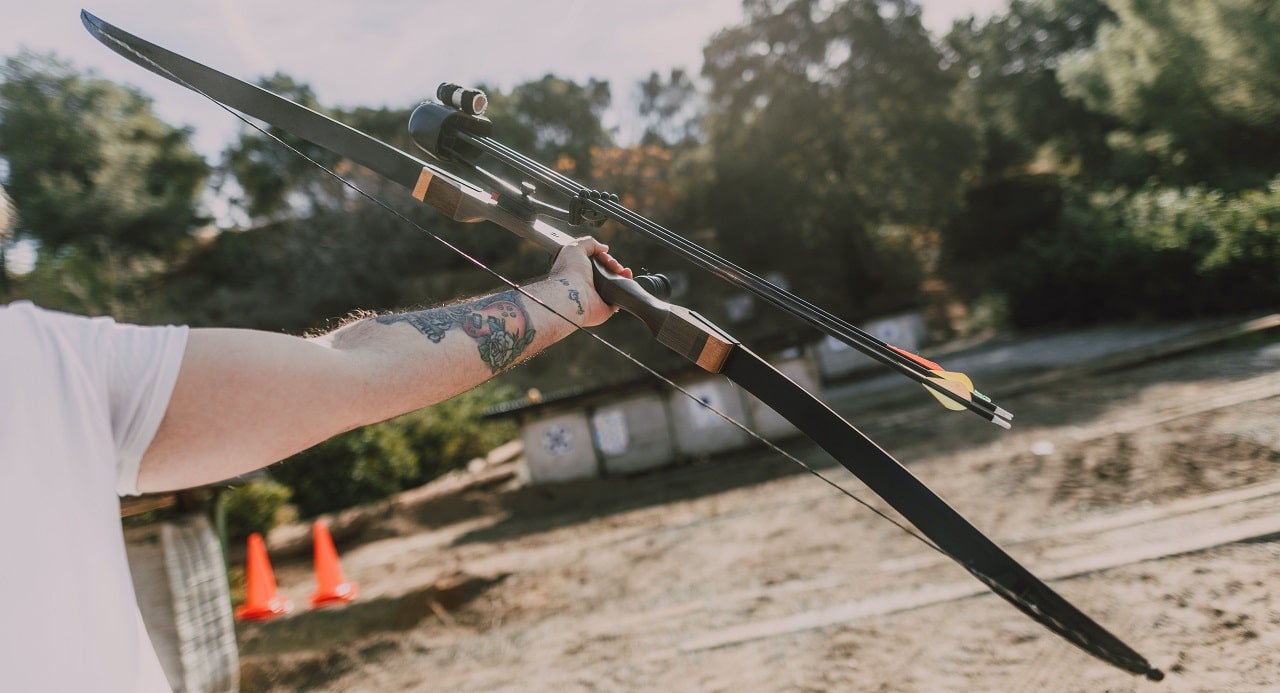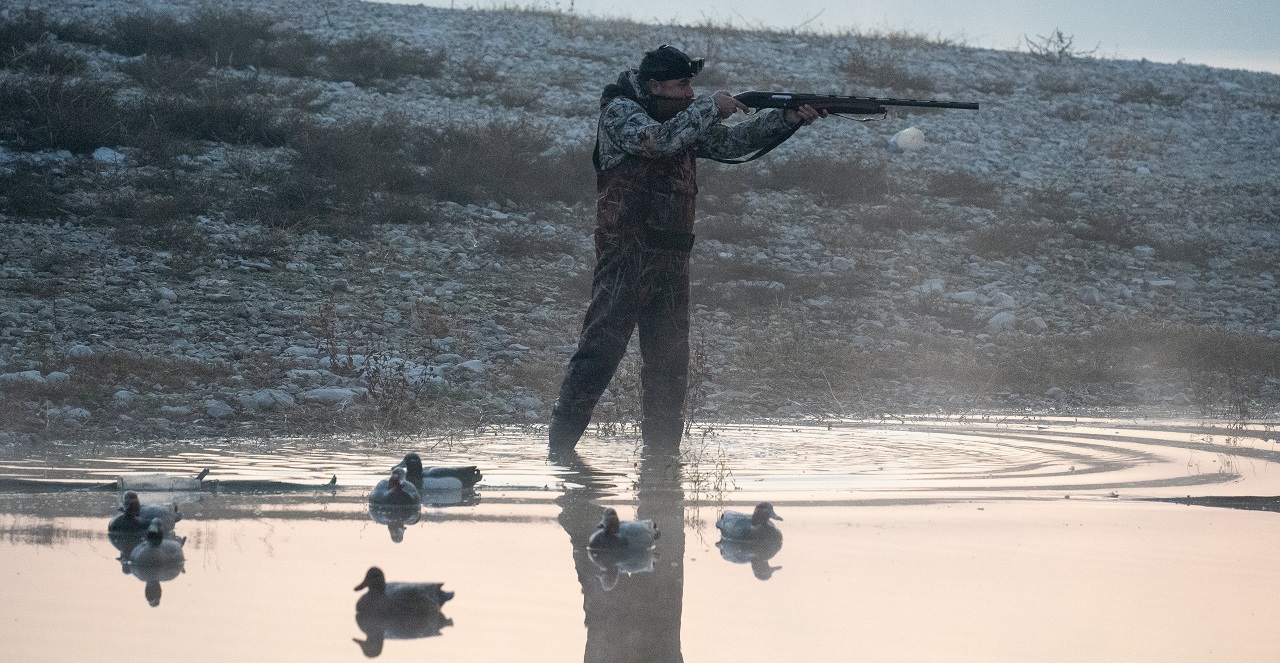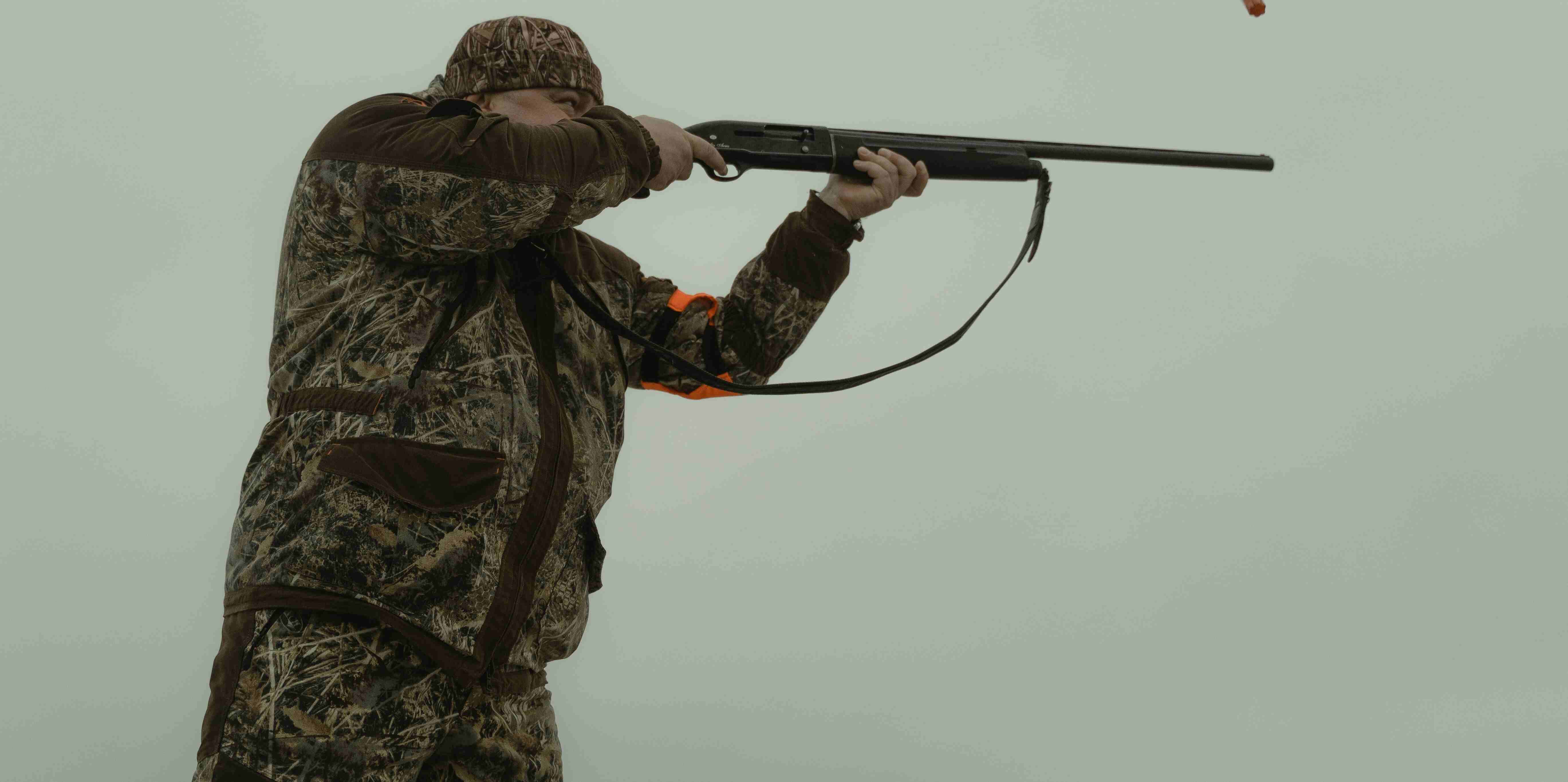What to Consider When Choosing a Firearm for Hunting: A Comprehensive Guide
This guide provides a comprehensive guide on selecting the right firearm for a hunting adventure, emphasizing the importance of skill, patience, and the right equipment for a successful hunting experience.
1. Know Your Game
The first step in choosing the right hunting firearm is understanding the type of game you’ll be pursuing. Different animals have varying sizes, behaviors, and habitats, which necessitate different calibers and types of firearms. For instance, the firearm suitable for deer hunting might not be ideal for small game or bird hunting. Research the specific characteristics of your target game to tailor your firearm choice accordingly.
2. Consider the Terrain
Terrain plays a pivotal role in determining the appropriate firearm. The open fields demand different features than dense forests or mountainous regions. If you’re navigating through thick vegetation, a lightweight and maneuverable firearm might be more suitable. On the other hand, for long-range shots in open areas, a firearm with greater accuracy and range may be preferable.
3. Understand Firearm Types
There are several kinds of firearms, and each has pros and cons. Typical hunting weapons include shotguns, muzzleloaders, bolt-action rifles, and semi-automatic rifles. Long-range shooters favor shotguns, although bolt-action rifles are renowned for their dependability and precision. Before choosing one, think about how comfortable and skilled you are with various kinds.
4. Select the Right Caliber
Choosing the right caliber is crucial for a successful hunt. A caliber that’s too small may lack the stopping power needed for larger game, while one that’s too large could result in excessive recoil, affecting your accuracy. Research and consult experienced hunters to determine the optimal caliber for your specific hunting needs.
5. Fit and Feel
Although sometimes disregarded, a firearm’s ergonomics are essential for a comfortable and precise shooting experience. Be mindful of elements including grip, weight, and draw length.. A firearm that feels natural in your hands and suits your body size will contribute to better accuracy and reduced fatigue during extended hunts.
6. Consider Optics
The right optics can significantly enhance your hunting experience. Scopes and sights come in various configurations, each suitable for different scenarios. Make sure your optics match your hunting environment by taking into account dimensions, field of view, and low light performance
In the sections that follow, we’ll go into more detail about each of these considerations to provide you with a comprehensive guide to selecting the best hunting rifle. Keep an eye out for informative posts that will help you confidently plan your next hunting trip.
7. Legal and Ethical Considerations
It’s important to become informed with local gun rules and restrictions before making a hunting purchase.. Different regions may have specific restrictions on calibers, magazine capacities, and even types of firearms allowed for hunting. Always ensure that your chosen firearm complies with these regulations to avoid legal complications. Additionally, consider the ethical aspects of hunting, such as choosing a firearm that ensures a humane and ethical kill.
8. Budget and Maintenance
You can’t remove your budget as a practical concern. There is a large price range for firearms, so although it may be tempting to get the newest and priciest model, it’s important to strike a balance between price and quality.. Moreover, factor in the cost of accessories like ammunition, cleaning supplies, and gun storage. Additionally, think about the ease of maintenance – a firearm that’s simple to clean and maintain will have a longer lifespan.
9. Review User Feedback and Expert Opinions
Before finalizing your decision, delve into user reviews and seek opinions from experienced hunters. Online forums, community discussions, and expert reviews can provide valuable insights into the performance, reliability, and durability of specific firearms. Real-world experiences from fellow hunters can help you make a more informed choice based on practical considerations.
10. Test Before You Buy
Whenever possible, try out different firearms before making a purchase. Visit a shooting range that allows firearm rentals or borrow from friends with similar models. You may get a firsthand understanding of a firearm’s handling, recoil, and general feel by testing various models. Using this hands-on approach might help you make a decision that best suits your shooting style and preferences.
11. Consider the Resale Value
While it might seem counterintuitive to think about selling your firearm before you’ve even bought it, considering the resale value is a smart move. Firearms, like any other equipment, can depreciate or appreciate over time. Opting for a reputable brand with a good track record for retaining value can be a strategic decision, especially if you anticipate upgrading or changing your firearm in the future.
12. Safety Features and Considerations
Last but certainly not least, prioritize safety features when choosing a hunting firearm. Look for features such as a manual safety, trigger safety, and other mechanisms that prevent accidental discharges. Additionally, invest in a quality gun lock and a secure storage solution to keep your firearm out of reach when not in use, ensuring the safety of yourself and those around you.
In the following sections, we’ll delve deeper into each of these considerations, providing practical advice and expert insights to guide you through the process of selecting the perfect hunting firearm. Whether you’re a seasoned hunter or a beginner, these factors will empower you to make a choice that aligns with your needs, preferences, and the ethical principles of responsible hunting. Stay tuned for a comprehensive exploration of each aspect, ensuring you’re well-equipped for your next hunting expedition.
13. Adaptability and Versatility
Consider the adaptability and versatility of the firearm you’re eyeing. A firearm that can be easily customized to accommodate different hunting scenarios or one that can handle various types of ammunition can be a valuable asset. This adaptability ensures that your firearm is versatile enough to meet the challenges of different hunting environments and game species.
14. Environmental Impact
As a responsible hunter, it’s essential to consider the environmental impact of your firearm choice. Some types of ammunition and firearms may have a more significant environmental footprint than others. Research eco-friendly options and choose ammunition that minimizes lead contamination, particularly if you’re hunting in areas where environmental conservation is a priority.
15. Availability of Accessories and Ammunition
Check the availability of accessories and ammunition for the firearm you’re considering. Opting for a popular and widely-used model ensures that you won’t face challenges in finding essential accessories like scopes, mounts, and replacement parts. Additionally, availability of ammunition is crucial; a firearm chambered in a common caliber may have a more consistent and affordable supply of ammunition.
16. Check Local Hunting Community Recommendations
Your local hunting community can be an invaluable resource. Attend hunting events, join online forums, or participate in local hunting clubs to gather insights from experienced hunters in your area. Local recommendations can be especially helpful, as they may take into account the specific challenges and conditions of the hunting grounds in your region.
17. Reputation of the Manufacturer
The reputation of the firearm manufacturer matters. Established and reputable manufacturers often have a history of producing reliable and high-quality firearms. Research the background of the manufacturer, read reviews on their customer service, and check if they offer warranties or guarantees. Investing in a firearm from a trustworthy manufacturer provides an added layer of confidence in your purchase.
18. Consider Recoil Tolerance
Recoil is a factor that can significantly impact your shooting accuracy and overall comfort. Different individuals have varying tolerance levels for recoil, so it’s crucial to choose a firearm that aligns with your comfort level. If possible, try out firearms with varying levels of recoil to determine what you find manageable and enjoyable during extended hunting sessions.
19. Future Upgradability
Anticipate your future needs and consider whether the firearm you’re eyeing allows for upgrades. This could include adding optics, adjusting the stock, or enhancing other features. A firearm that can be easily upgraded allows you to adapt to changes in your skill level, preferences, or the types of hunting you engage in over time.






Espectro de vibracion
Sistemas de equilibrado: esencial para el operación estable y productivo de las máquinas.
En el campo de la avances moderna, donde la rendimiento y la fiabilidad del equipo son de alta importancia, los dispositivos de balanceo cumplen un rol crucial. Estos sistemas especializados están diseñados para equilibrar y estabilizar piezas rotativas, ya sea en dispositivos industrial, vehículos de traslado o incluso en equipos de uso diario.
Para los especialistas en mantenimiento de aparatos y los ingenieros, manejar con equipos de ajuste es fundamental para asegurar el desempeño uniforme y estable de cualquier aparato giratorio. Gracias a estas soluciones innovadoras avanzadas, es posible disminuir significativamente las vibraciones, el zumbido y la presión sobre los rodamientos, mejorando la duración de componentes caros.
Igualmente trascendental es el papel que desempeñan los aparatos de equilibrado en la servicio al cliente. El asistencia técnico y el conservación permanente usando estos sistemas posibilitan dar asistencias de excelente nivel, aumentando la satisfacción de los usuarios.
Para los titulares de emprendimientos, la financiamiento en equipos de calibración y detectores puede ser importante para optimizar la productividad y rendimiento de sus dispositivos. Esto es particularmente relevante para los inversores que administran pequeñas y medianas negocios, donde cada elemento vale.
Por otro lado, los sistemas de balanceo tienen una vasta utilización en el sector de la prevención y el monitoreo de estándar. Permiten localizar posibles errores, previniendo reparaciones caras y perjuicios a los sistemas. También, los información extraídos de estos dispositivos pueden utilizarse para perfeccionar métodos y mejorar la exposición en plataformas de consulta.
Las áreas de uso de los aparatos de equilibrado cubren múltiples sectores, desde la manufactura de transporte personal hasta el control de la naturaleza. No interesa si se trata de importantes elaboraciones productivas o modestos espacios hogareños, los dispositivos de equilibrado son necesarios para asegurar un desempeño efectivo y sin fallos.